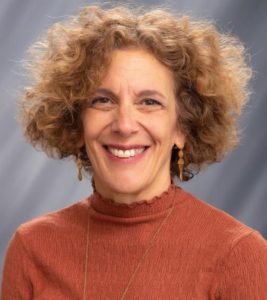Forgiveness News
‘Racialized’ Forgiveness?
An author, Myisha Cherry, in the journal, Hypatia in 2021, made the claim that under certain circumstances, forgiveness becomes “racialized.” In her words in that article:
“Cases that exemplify certain conditions that I take as paradigmatic of the problem of racialized forgiveness includes instances in which: A. Who is forgiven or not is (overtly or tacitly) determined by the race of the offender. B. Praise and criticisms of forgiveness are determined by the race of the victim. C. Praise and criticisms of forgiveness are, at least implicitly, racially self-serving.”

Image from Pexels.com
Yet, we would have preferred that the two words, “racialized” and “forgiveness” were not put together because there are no such aspects of true forgiveness. A more appropriate pairing of words would be “racialized pseudo-forgiveness” or “racialized false forgiveness” because that is what is happening. Aristotle reminded us that any moral virtue is bounded by two vices, one which is an under-representation (for example, in the case of forgiveness the person exhibits moral weakness in which others dominate the one who is trying to forgive) and one that is an excess of the virtue (in the case of forgiving, the one who supposedly forgives is actually using forgiveness as a weapon to dominate others). “Racialized false forgiveness” actually is a vice, not a moral virtue, in which the person uses forgiveness to dominate others. This, of course, is not forgiveness at all and it should be recognized as such. To equate “racialized forgiveness” with the true form of forgiveness is philosophically incorrect. Dr. Cherry has a book-length work (Failures of Forgiveness, 2023) in which she continues with these ideas. It is good that she is pointing out this excess of forgiveness, but in the future, this needs to be classified not as the moral virtue of forgiveness but as a distortion of it.
Dr. Enright discusses ‘Forgiveness is a Choice’ on Relationship Podcast
On April 2, 2024, Dr. Enright appeared on a one-hour podcast on YouTube, We Need to Talk with Dr. Darcy Sterling. Dr. Sterling is a New York City-based relationship therapist and host of E! Network’s Famously Single, who specializes in working with high-performance women who want to prioritize love and relationships.
Sterling describes her forgiveness journey that led her to interview Dr. Enright as follows on the YouTube video description:
“Years ago, I was gutted by a falling out with one of my siblings. It quickly became clear that we were on the verge of estrangement, and that impending loss brought me to my knees — I had just recovered from PTSD and was terrified of getting sucked into the black hole of trauma that I’d just come through.
Frantic for help, I found myself Googling a solution, and up came the term Forgiveness Therapy.
To be clear: I was not feeling forgiving. But I was feeling desperate. I did not want to revisit the darkness I’d just emerged from.
A book on forgiveness had recently been published by a professor named Robert Enright. In it he posits that forgiveness isn’t about cutting the other person slack. It’s a liferaft for people who feel wronged. Enright’s theory had been peer-reviewed — the gold standard in the field of psychology — so, despite my apprehension, I committed to following his program.
Today, my journey through forgiveness comes full circle in my conversation with the theorist himself, Dr. Robert Enright.
If you struggle with anger or are someone who holds grudges and you want to explore a solution, please listen to this episode.
In it, you’ll learn:
Why it makes sense if the thought of forgiving someone who wronged you makes you cringe.
The consequences of not forgiving.
How choosing to forgive puts you in control of your feelings.
How Enright’s program helped me to personally bypass a relapse of PTSD.”
Check out the interview below!
Forgiveness Education Identified by the CDC as a way to “Promote Social, Emotional, and Behavioral Learning”
As described in the abstract in Freedman’s (2018) study, forgiveness education was implemented with 10 at-risk adolescents

Dr. Suzanne Freedman
attending an alternative high school in a Midwestern city. Twenty-one participants were randomly assigned to either the experimental group (forgiveness education class) or the control group (personal communications class). Classes met daily for 31 sessions for approximately 23 hours of education. Enright’s process model of forgiveness was used as the focus of the intervention. After the education, the experimental group gained more than the control group in forgiveness and hope, and decreased significantly more than the control group in anxiety and depression. Verbal reports from the experimental participants following the education also illustrate the positive impact forgiveness had on the students.
UPDATE – 2nd International Conference on Forgiveness in Israel Postponed
We had posted in September 2023 about the 2nd International Conference on Forgiveness occurring this coming July 2024 at Zefat Academic College in Israel. With the ongoing conflict in Israel the forgiveness conference has had to be postponed indefinitely, although the conference team hopes to reschedule for some time in 2025. Please click this link for the full announcement from The Forgiveness Conference Team at Zefat Academic College and read below for the original announcement about the conference.
Zefat Academic College in Israel will be hosting the 2nd International Conference on Forgiveness next summer, July 9-11, 2024. The conference website describes the conference as an event where ‘scholars, experts, and practitioners in relevant fields’ will present and discuss the following themes:
- Forgiveness as a human experience
- Forgiving within an intra/intercultural context
- The forgiver and the forgiven relationship
- Being forgiven
- Forgiveness, justice, and the law
- Forgiveness – values, virtues, and ethics
- Forgiveness in religious, social, and political conflicts
- Religious and spiritual perspectives on forgiveness

One of the keynote speakers is Dr. Suzanne Freedman, longtime member of the International Forgiveness Institute team! She will be giving a presentation entitled ‘Guidelines for Forgiveness Therapy: What Therapists Need to Know to Help Their Clients Forgive.’
If you are interested in contributing to the 2nd International Conference on Forgiveness yourself, you are invited to submit your application to present a lecture at the upcoming conference. You may choose to submit one or more types of presentation:
- Individual presentations
- Workshops
- Pre-arranged panels
The Conference Organizing Committee is unable to process email submissions so please ensure that all applications are submitted between September 1, 2023 and January 1, 2024 via this Google Form link.
All submissions will undergo peer review. Notifications of acceptance or rejection will be sent by February 1, 2024.
For more information about the conference and the types of submissions, please visit the conference website.
For further information, you may also contact the conference organizers at: forgivenessconferences@gmail.com
Dr. Enright Is Interviewed for Woman’s World Magazine

Image from Pexels.com
On December 14, 2023, Dr. Enright’s interview with Kristina Mastrocola for Woman’s World magazine appeared on their website. The article is entitled, Experts Share How to Forgive Someone and Give *Yourself* the Gift of Healing.
Click on this link to read the interview!



